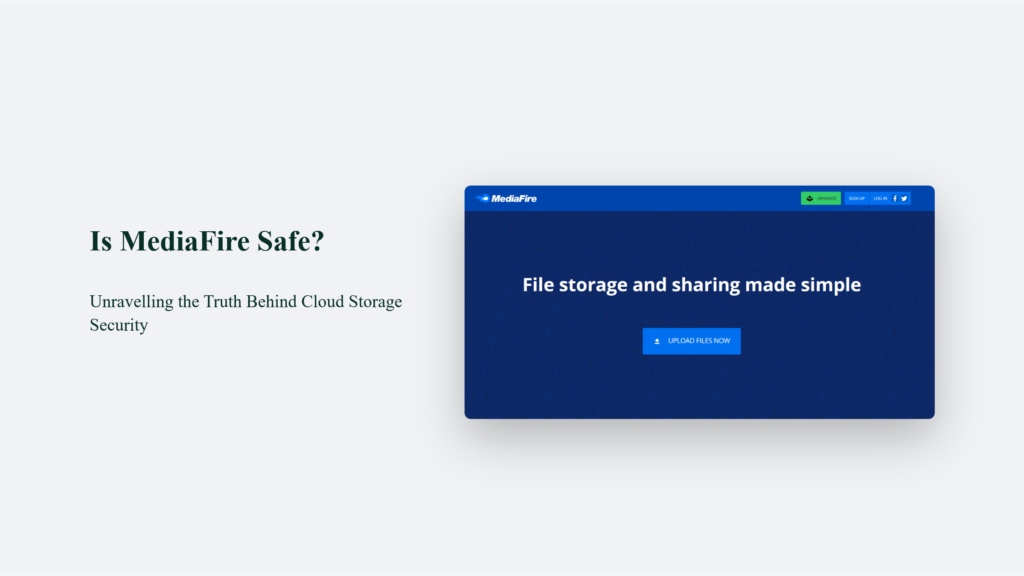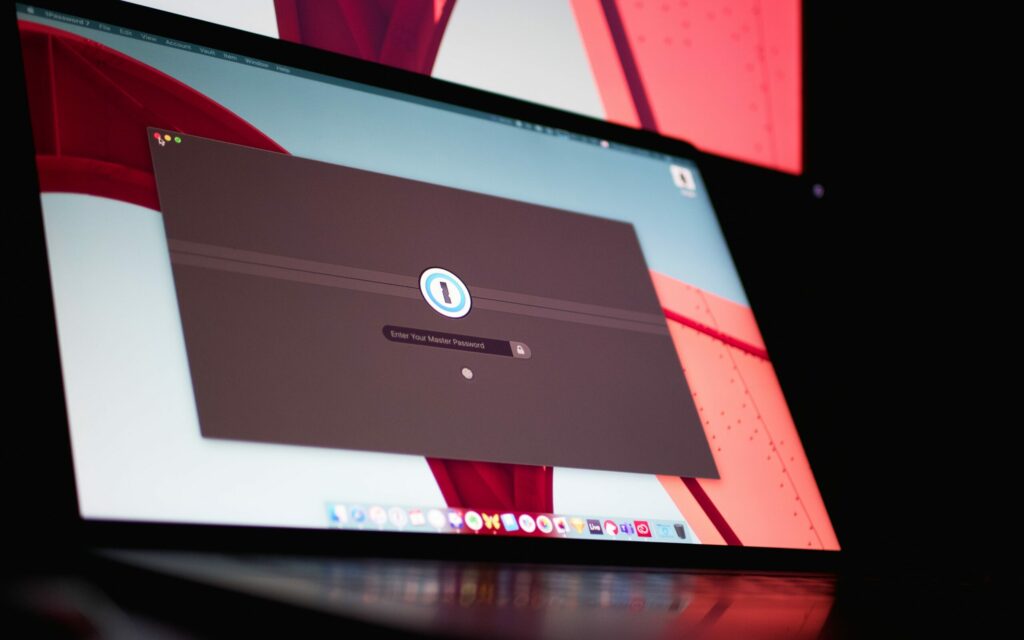Look, I get it. You’ve got a digital life bursting at the seams with photos, documents, and probably a few memes you’re not ready to part with. So you turn to cloud storage, and MediaFire catches your eye. But then that nagging voice in your head pipes up: “Is MediaFire safe?” Well, buckle up because we’re about to dive deep into the rabbit hole of cloud storage security, and trust me, it’s more fascinating than you might think.

The Basics of Cloud Storage Security: Not Just Fluffy White Things in the Sky
Before we dissect MediaFire like a frog in a high school biology class, let’s understand what cloud storage security actually means. Cloud storage isn’t just some magical place where your files float in digital heaven. It’s a complex system of servers, protocols, and enough encryption to spin Alan Turing’s head.
The big concerns are data breaches, unauthorized access, and the ever-present threat of some bored hacker deciding your vacation photos are their next target. But here’s where it gets interesting: not all cloud storage services are created equal. MediaFire is like that kid in class who’s not the valedictorian but not the class clown. It’s somewhere in the middle, with its own unique quirks.
MediaFire’s Security Features: More Than Just a Pretty Interface
Now, let’s talk about what MediaFire brings to the security potluck. First up is encryption. MediaFire uses SSL/TLS encryption for data in transit. In plain English? It’s like your files wear an invisibility cloak while travelling from your device to MediaFire’s servers. Not bad, right?
But wait, there’s more. MediaFire also employs user authentication measures that are tighter than your grandma’s grip on her secret cookie recipe. We’re talking email verification, password requirements that would make a cryptographer sweat, and two-factor authentication options. It’s like Fort Knox but for your digital stuff.
And let’s not forget about data center security. MediaFire’s servers are locked down tighter than a drum, with physical security measures that would make a Hollywood heist movie look like child’s play. We’re talking biometric access controls, 24/7 surveillance, and probably a few security guards who take their job way too seriously.
The Plot Thickens: Potential Vulnerabilities
But here’s where it gets really interesting. Despite all these fancy security measures, MediaFire isn’t impenetrable. No cloud storage service is. The biggest chink in the armour? File sharing.
See, MediaFire makes it super easy to share files. This is great for productivity but not so great for security. It’s like throwing a party and telling everyone to bring a friend. Sure, it’ll be fun, but who knows who might show up?
And then there’s the issue of account security. Your MediaFire account is only as secure as your password. If your password is “password123”, I hate to break it to you, but you’re leaving your digital front door wide open with a neon sign saying “Hackers Welcome”.
Oh, and let’s not forget about third-party access. MediaFire, like many cloud services, has APIs that allow other applications to access your files. It’s convenient, sure, but it’s also another potential entry point for the bad guys.
You’re Part of the Equation: User Responsibility in Cloud Storage Safety
Now, before you start pointing fingers at MediaFire, let’s have a moment of brutal honesty. A lot of cloud storage security comes down to you, the user. Yeah, I’m looking at you.
Strong passwords aren’t just a suggestion; they’re a necessity. And no, adding an exclamation point to the end of “password” doesn’t count as strong. We’re talking about a mix of uppercase and lowercase numbers and symbols that look like a cat walking across your keyboard.
Two-factor authentication? It’s not just for tech geeks and paranoid conspiracy theorists anymore. It’s like adding a moat to your castle. Sure, it’s a bit of a hassle, but so is having your identity stolen.
And when it comes to file sharing, a little caution goes a long way. Think of it like lending your car. You wouldn’t hand your keys to a stranger, so why would you share sensitive files with just anyone?
MediaFire vs. The Competition: A Security Showdown
Now, you might be wondering how MediaFire stacks up against the big players like Dropbox, Google Drive, and OneDrive. Well, it’s not exactly a David vs. Goliath situation, but it’s close.
In terms of encryption, MediaFire holds its own. But when it comes to advanced security features, it’s like bringing a knife to a gunfight. Google Drive and Dropbox offer features like remote device logout and account activity monitoring. MediaFire? Not so much.
But here’s where MediaFire shines: simplicity. Its user interface is cleaner than a whistle, making navigating security settings easier for the average Joe. Sometimes, simpler is safer, especially if users are more likely to use the security features available.
The Verdict from the Experts: Not Just Some Guy’s Opinion
Now, I’m not just pulling this information out of thin air. Cybersecurity experts have tested MediaFire, and the verdict is… drumroll, please… it’s pretty decent.
MediaFire complies with industry standards and regulations. It’s not Fort Knox, but it’s not a house of cards, either. It’s more like a solidly built suburban home with a good alarm system. Will it keep out a determined master thief? Probably not. But it’ll deter the average burglar.
One area where MediaFire could step up its game is third-party security audits. Some of its competitors undergo regular independent security assessments. MediaFire? They’re a bit more tight-lipped about it. It’s not necessarily a red flag, but it’s definitely an area for improvement.
The Crystal Ball: The Future of Cloud Storage Security
So, where do we go from here? The future of cloud storage security is as exciting as it is terrifying. We’re talking about emerging threats like quantum computing that could potentially crack current encryption methods like an egg.
But don’t panic just yet. The good guys are working on it, too. We’re seeing advancements in encryption technology, artificial intelligence-driven threat detection, and blockchain-based security solutions that sound like something out of a sci-fi novel.
As for MediaFire’s role in this brave new world? They’re not leading the charge, but they’re not being left in the dust either. They’re like that steady, reliable friend who might not be the life of the party but will definitely help you move house.
The Bottom Line: Is MediaFire Safe?
So, after all this, is MediaFire safe? Well, like most things in life, it’s complicated. Is it Fort Knox? No. Is it a cardboard box with a “Keep Out” sign? Also no.
MediaFire offers solid, industry-standard security features. Its encryption, user authentication, and physical security measures are nothing to sneeze at. But it’s not without its vulnerabilities, particularly when it comes to file sharing and advanced security features.
The real question isn’t just “Is MediaFire safe?” but “Is MediaFire safe enough for you?” If you’re storing nuclear launch codes or the secret recipe for Coca-Cola, maybe look elsewhere. But for the average user storing photos, documents, and yes, even those memes? MediaFire is probably secure enough.
Remember that a big part of cloud storage security is on you. Use strong passwords, enable two-factor authentication, and be cautious about what you share and with whom. Think of it like driving a car. MediaFire provides seatbelts and airbags, but you still need to obey the traffic laws and not text while driving.
In the end, cloud storage is a bit like life itself. There are no guarantees, but with the right precautions, you can stack the odds in your favour. So go forth, store your files, and may your data always be secure and your memes always be dank.
Frequently Asked Questions:
Can anyone access my MediaFire files?
No, not unless you give them permission. Your files are private by default. However, if you share links to your files or folders, anyone with that link can access them. Always be cautious about who you share your file links with.
Does MediaFire encrypt my files?
MediaFire uses encryption for data in transit (when you’re uploading or downloading files). However, they don’t currently offer end-to-end encryption or zero-knowledge encryption for stored files, which some competitors do provide.




